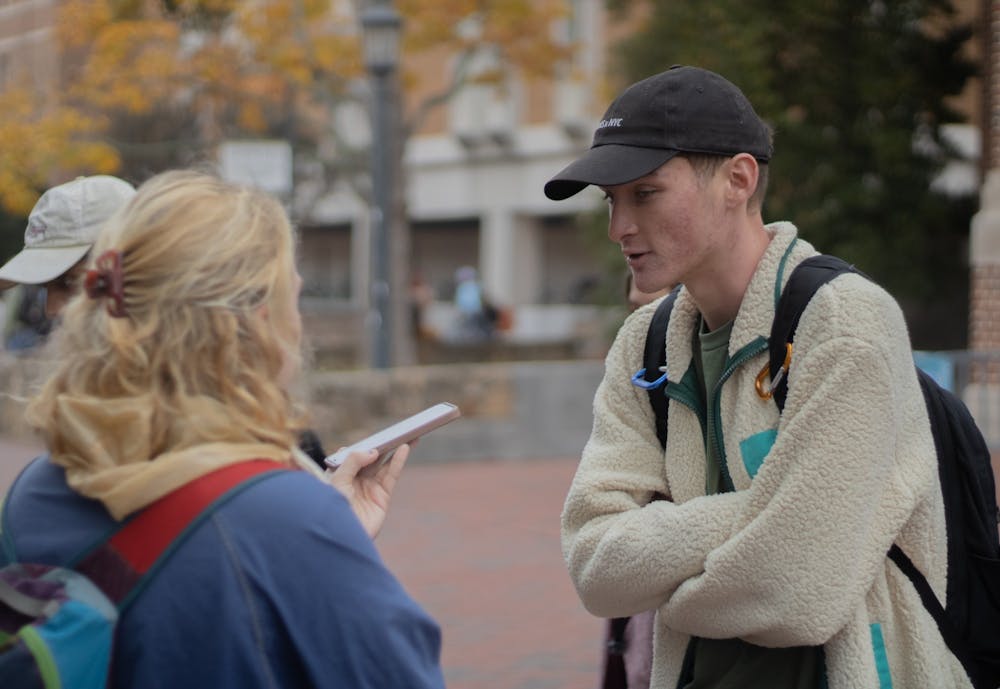You expel the remnants of sleep through a big yawn. Your eyes drift open. You feel strange… almost like you’re… well-rested? Wait, that’s not right — It’s 8:53 a.m. You have class in exactly 12 minutes.
In a feat of unprecedented athletic prowess, you bolt out of bed and jam your feet into shoes, grab your backpack and race to Gardner Hall — are you the next RJ Davis? Or is he the next you?
It’s a battle between you and Father Time, with the fate of the universe — your GPA — hanging in the balance. You’re power walking to class (you have just enough self-respect left not to run). As you’re passive-aggressively side-stepping sluggish walkers and dodging contingents of student-athletes commanding electric scooters, someone approaches.
He dual-wields a hand-held microphone and camera. His head is armored with an impossibly small beanie. You make intense eye contact with the ground, naively believing this will save you, but your fate is sealed from the moment you cross paths. The cycloptic eye of the camera turns its hungry gaze at you. Behind thin wire-rimmed glasses, his eyes glint and you brace yourself:
“What are you listening to today?” he inquires. Your heart drops, and your oat milk latte curdles in your stomach as you open Spotify and wordlessly reveal the screen: “Creep (Glee Cast Version).”
“Rough morning, OK?” you mumble, trying to escape the omnipotent eye of the camera.
But it’s too late. You’ve been condemned to infamy by a TikTok street interview for eternity. Soon, the whole world will know that you are unconditionally and irrevocably uncool via short-form video content.
While this scenario is an exaggeration, street interviews are a growing phenomenon on the UNC campus. Fit checks and music interviews can be embarrassing if you’re caught unaware, but they’re fairly harmless and are even fun to watch or be a part of (please validate my outfit, @tufffittuesday).
However, these lighthearted videos reveal the invasive nature of interviews in public spaces. In North Carolina, it’s legal to record people in public spaces. This has contributed to an environment that encourages the commercialization of people just trying to go about their lives. From interviewers asking for fit checks to Kendra Scott pop-ups to political commentators hurling provocative statements about why you (yes, you specifically) don’t deserve rights, all eyes — and, more concerningly, cameras — are on you.




